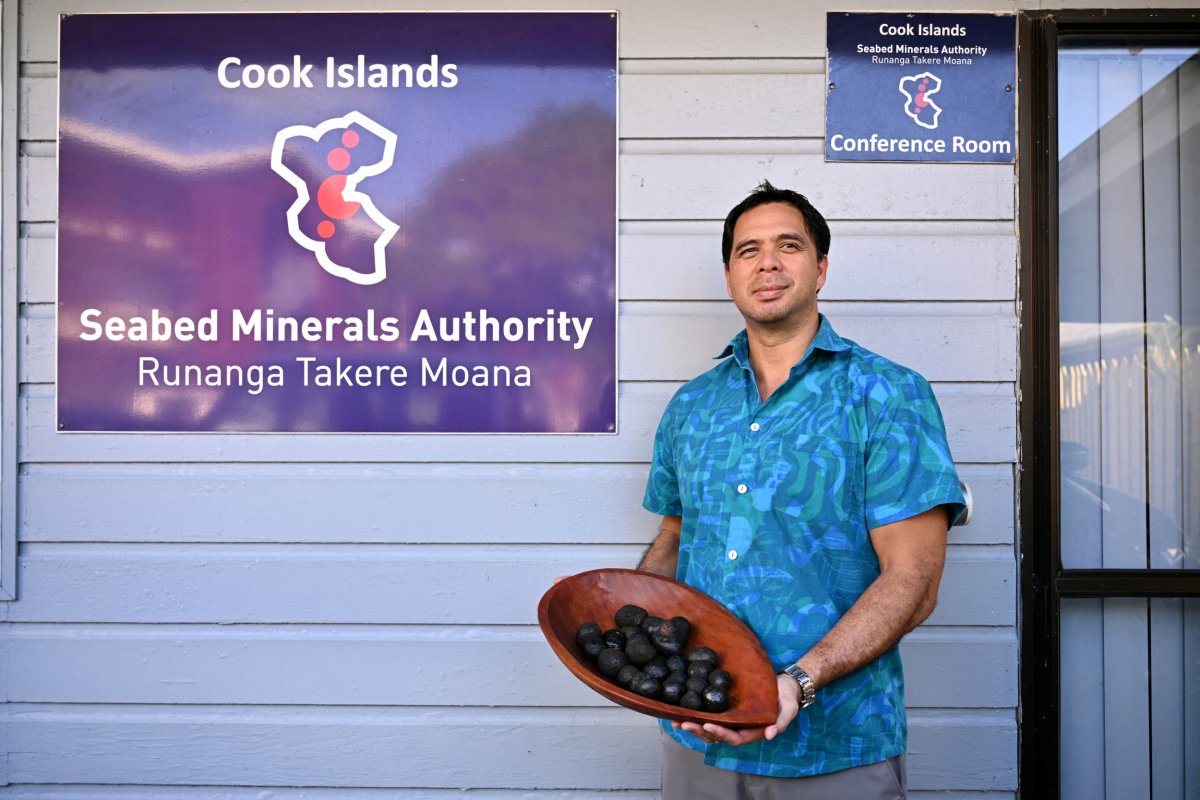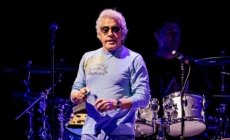-
Josh Brolin Teases Potential Marvel Thanos Return - 9 mins ago
-
The Who’s Roger Daltrey says current tour will be the band’s last - 15 mins ago
-
2025 AFC East Player Specials: How Will Star Dolphins Show Up? - 17 mins ago
-
QR code scams rise as 73% of Americans scan without checking - 35 mins ago
-
Red Bull Insider: Daniel Ricciardo ‘Affected By The Success’ In F1 - 49 mins ago
-
How to watch the 2025 FedEx St. Jude Championship: Schedule, TV channels, streaming, dates - about 1 hour ago
-
Double Festival Day at Skanzen Open-Air Museum - about 1 hour ago
-
ChatGPT gave alarming advice on drugs, eating disorders to researchers posing as teens - about 1 hour ago
-
Owner Who ‘Needed a Break’ Tries To Hide From Dog—Does Not Go To Plan - about 1 hour ago
-
Tennessee grandmother Leanne Morgan stars in new Netflix sitcom series - 2 hours ago
Map Shows Where US Will Start Deep Sea Mining in the Pacific
The U.S. has partnered with the Cook Islands, a self-governing country in the South Pacific, to develop the latter’s resource potential and build up America’s critical mineral stockpile.
“The governments of the United States of America and the Cook Islands are pleased to announce our cooperation to advance scientific research and the responsible development of seabed mineral resources,” the pair said in a joint announcement released Tuesday.
Why It Matters
The Cook Islands’ seabed is exceptionally rich in a number of minerals considered critical for modern technology and energy transitions, a fact that its officials view as offering significant economic opportunities.
As noted in Tuesday’s announcement, combining this mineral potential with America’s “expertise in oceanic research and technology” could prove a lucrative partnership that will position the Cook Islands as a key player in the emerging deep-sea mining economy, while giving the United States a foothold in the Pacific’s critical mineral supply chain.
What To Know
The Cook Islands is a self-governing island nation in free association with New Zealand, meaning the latter handles many of its foreign and security affairs after consulting with its government. It consists of 15 islands, as well as atolls— ring-shaped coral islands—between New Zealand and Hawaii.
According to Tuesday’s announcement, the two nations have commenced discussions on the exploration and “responsible development” of the Cook Island’s seabed, specifically its Exclusive Economic Zone (EEZ). The Cook Islands holds sovereign rights to explore this ocean area, which extends 200 nautical miles (370 kilometers) from its shores and covers a total of just under 2 million square kilometers (around 770,000 square miles).
According to the country’s Seabed Minerals Authority, this area has an estimated resource of around 12 billion wet tonnes of nodules—deep ocean deposits of minerals. These include the metal cobalt, as well as nickel, copper, manganese, niobium, zirconium and certain rare earth elements.
These minerals are among the 50 considered “critical” by the U.S. government, given their essential role in modern technologies and resulting importance to both the economy and national security. Cobalt is employed in rechargeable batteries, as is nickel, which together with niobium is used to produce stainless steels and superalloys. Manganese is used in battery production, while zirconium’s unique chemical properties make it useful for corrosion-resistant alloys.
“Seabed minerals are critical for developing and powering the technology of today and the future,” Tuesday’s announcement read. “The Cook Islands is a leader in the exploration of its Exclusive Economic Zone mineral resources and recognizes the significant potential of these resources to support long-term growth and prosperity for its people.”
The Cook Islands has long sought to capitalize on its mineral potential. In 2023, Prime Minister Mark Brown told the Australian Broadcasting Corporation that research was underway to determine the environmental impacts of exploration, but that the potential revenues from deep sea mining could give the Cook Islands the financial means to strengthen its “resilience” against the threats posed by climate change to low-lying territory.
Saleem Ali, professor of energy and the environment at the University of Delaware and member of the United Nations International Resource Panel, told Newsweek that deep sea mining would also allow the country to diversify its economy.
“The islands are trying to diversify their economy beyond tourism and fishing and also asserting their scope of sovereignty vis-à-vis New Zealand,” said Ali, who visited the islands in 2023 and met with government officials to discuss the matter.
Ali told Newsweek that initial exploration had already been done in the region, and that the new partnership with the U.S. could “add further technical refinement to potential deposits.”

William West/AFP via Getty Images
The partnership also advances one of the U.S. administration’s minerals objectives. In April, Trump signed an executive order calling for the country to maintain its “leadership in deep sea science and technology and seabed mineral resources,” and to “counter China’s growing influence over seabed mineral resources.”
In February, the Cook Islands signed a five-year agreement with China, which among other things called for cooperation in seabed mineral research.
However, these efforts and Tuesday’s agreement raise concerns regarding environmental stewardship and the sustainability of rapidly exploiting one of the planet’s least understood ecosystems.
Extraction proposals have drawn condemnation from environmental activists, who believe these activities should be paused until there is greater understanding of the consequences for marine life.
In May 2024, Alex Herman, then-head of the Cook Islands Seabed Minerals Authority, told the New York Times that the agency was taking a prudent approach to seabed mining.
“The Cook Islands is such a special place, our own paradise,” Herman said, “and we want to be very mindful about any unintended consequences or impacts arising out of the progression of this sector.”
“There are of course environmental risks and trade-offs of any such activity,” Ali told Newsweek. “But the Cook Islands have developed robust regulatory mechanisms under a seabed management authority and have a commissioner for deep sea mining who is tasked with managing such trade-offs.”
What People Are Saying
The Cook Islands and the U.S., in Tuesday’s announcement, said: “Today, we affirm our commitment to scientific advancement, mutual prosperity, economic self-reliance, and environmental stewardship as we partner to map and research the Cook Islands’ seabed mineral resources.
“The Cook Islands, with its vast maritime natural resources, and the United States of America, with its expertise in oceanic research and technology, are uniquely positioned to work together to ensure that the exploration and development of seabed mineral resources are guided by rigorous gold standard science and best practices.”
President Donald Trump, in the April executive order, said: “The United States has a core national security and economic interest in maintaining leadership in deep sea science and technology and seabed mineral resources. The United States faces unprecedented economic and national security challenges in securing reliable supplies of critical minerals independent of foreign adversary control.”
Trump also called for “strengthening partnerships with allies and industry to counter China’s growing influence over seabed mineral resources and to ensure United States companies are well-positioned to support allies and partners interested in developing seabed minerals responsibly in areas within their national jurisdictions, including their EEZs.”
What Happens Next?
Tuesday’s announcement outlined future collaboration in conducting research “necessary to inform seabed exploration.” No specific timeline for when exploration will take place was provided, however.
Source link






























